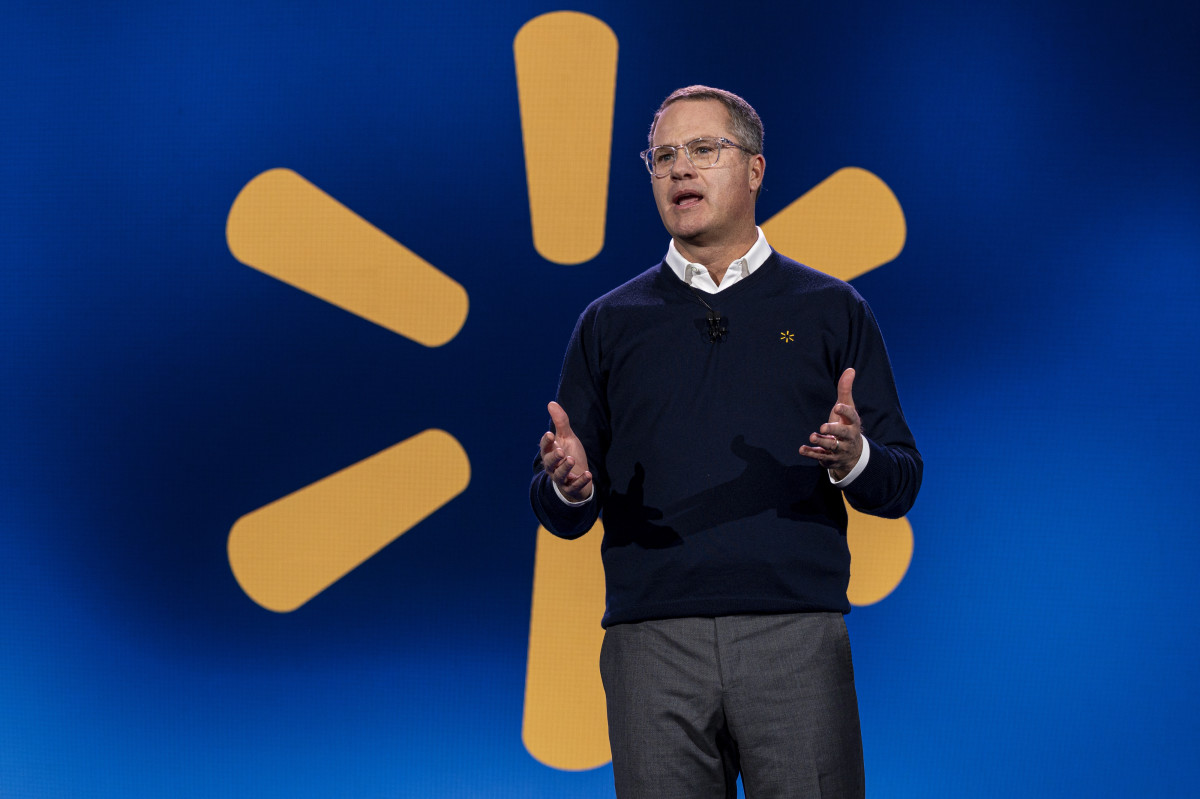Since the surge in inflation began in 2022, consumers have been tightening their belts financially, and concerns over potential price hikes due to recently imposed tariffs have ignited significant discussion.
In 2025, the Trump administration implemented several tariff measures, such as imposing 25% duties on imports from Canada and Mexico starting in February, followed by introducing a standard 10% import levy in April. On April 2, additional reciprocal tariffs were declared but then suspended for three months beginning April 9 due to significant declines in both the stock and bond markets.
Related: Walmart’s CEO delivers stern message to shoppers
This break provides the White House with an opportunity to negotiate trade agreements that could potentially reduce tariff impacts. Nonetheless, these deals probably won’t completely remove tariffs, which poses a challenge for shoppers.
After China became part of the WTO in 2001, many U.S. retailers such as Walmart have predominantly been involved. ( WMT ) , have become increasingly dependent on Chinese imports for items ranging from apparel to electronic devices.

Walmart’s CEO cautions about price increases; Trump responds with criticism.
As the country's biggest retailer, Walmart may put pressure on its suppliers and take on part of the increased tariff costs. However, during a recent quarterly investor call, the company’s chief executive officer mentioned that they plan to transfer at least some portion of these additional expenses to consumers.
Despite the lowered tariff rates announced earlier this week, the scale of these duties makes it impossible for us to bear all the financial strain considering our slim profit margins," stated Walmart CEO Doug McMillon on May 15. "These increased tariffs will inevitably lead to higher costs for consumers."
Associated: Walmart and Target could be cut off from sought-after items amid the tariff dispute.
The revelation received a strong criticism from the President.
Stop blaming tariffs for increasing prices across the board," Trump posted on Truth Social. "Both Walmart and China should absorb the tariffs instead of passing along any additional costs to their loyal customers.
At first, the U.S. imposed reciprocal tariffs on Chinese imports at 34%, in addition to a previously established 'fentanyl tariff' of 20% implemented in February.
The action prompted a countermove from China, initiating a tariff battle where taxes on Chinese products were raised to 145%, while China increased duties on American goods to 125%. These rates significantly hampered commerce between the two large economic powers.
On May 13, following a gathering of important officials such as China’s Vice Premier and Treasury Secretary Scott Bessent, the U.S. decided to decrease its China tariffs down to 30%.
Treasury Secretary Bessent acknowledges that price hikes at Walmart are probable.
Bessent, a long-time stock market veteran trained under legendary hedge fund manager Stanley Druckenmiller, has emerged as the voice of the Trump Administration’s tariff negotiations.
After Walmart addressed pricing issues and following President Trump’s social media statement, Bessent mentioned on Sunday that he had conversed with Walmart’s CEO Doug McMillon on May 17.
"Walmart will absorb some of the tariffs, with some potentially being passed on to customers," Bessent admitted. CNN .
Bessent attempted to make the communication about inflation more palatable for consumers by highlighting that gasoline costs have decreased this year, which might counterbalance the rise in retail prices.
He additionally proposed that Walmart’s remarks about pricing reflect the most pessimistic outlook.
Nevertheless, this might not be sufficient to alleviate consumer concerns, as many have become progressively anxious about inflation following the tariff announcements.
The University of Michigan’s consumer confidence survey index dropped 27% compared to the previous year to reach 50.8 in May. Approximately seventy-five percent of participants in the survey cited tariffs, and their anticipated inflation for the coming year jumped to 7.5% from 6.5% the prior month.
“Since January 2025, sentiment has dropped nearly 30%,” noted Joanne Hsu, who leads the Surveys of Consumers. “Although several survey indicators suggested an improvement after the brief decrease in China tariffs, these early increases weren’t significant enough to change the broader outlook.”
Associated: Goldman Sachs revises its prediction for the S&P 500 index significantly


0 Comments